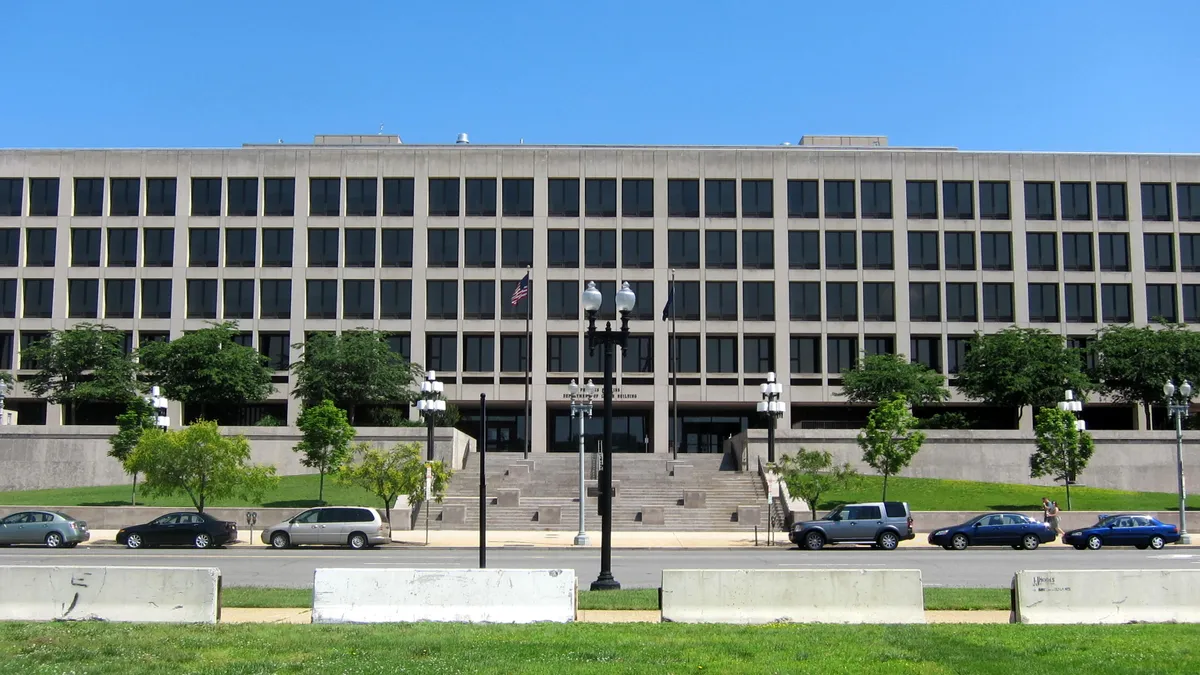Dive Brief:
- The U.S. Department of Labor (DOL) is planning to revisit its Family and Medical Leave Act (FMLA) regulations, according to a Wednesday announcement.
- The agency plans to issue a Request for Information (RFI) seeking comments from stakeholders on how it can improve its FMLA rules. The RFI, still in its pre-rule stage, is part of DOL's spring 2019 regulatory agenda; the agency said it's aiming to: (1) "better protect and suit the needs of workers" and (2) "reduce administrative and compliance burdens on employers."
- A DOL spokesperson told HR Dive the RFI is expected by April 2020 or sooner.
Dive Insight:
While it's unclear what DOL plans to change about its FMLA regs, the RFI announcement follows recent comments from Helen Applewhaite, branch chief, branch of FMLA and other acts at DOL's Wage and Hour Division, that hinted at changes to FMLA forms. According to a tweet from Jeff Nowak, shareholder at Littler Mendelson, Applewhaite told attendees at the Disability Management Employer Coalition's 2019 FMLA/ADA Employer Compliance Conference earlier this month that the agency is looking at ways to make FMLA forms easier to use, including reducing the demand they place on physicians. The agency previously declined to comment further on Applewhaite's remarks.
Helen Applewhaite of @USDOL forecasts possible changes to #FMLA forms: feedback asking DOL to make forms easier to use, more check boxes, reduce demand on physicians, certifications should more quickly determine if condition is actual serious health condition. #COMPLIANCE2019
— Jeff Nowak (@jeffreysnowak) May 7, 2019
FMLA compliance is a perennial challenge for employers, given the need to coordinate with managers and doctors, in addition to the ever-evolving web of policies. DOL released an opinion letter earlier this year stating that paid time off and FMLA leave must run concurrently (with an important exception). Similarly, DOL opined last year that organ donors can qualify for protected leave under the law. There also are changing state and local laws to contend with, including paid parental leave laws that interact with the FMLA, according to attorneys who previously spoke with HR Dive.
Whether or not the agency ends up making changes to FMLA forms, Applewhaite, in a January webinar, offered tips for addressing pain points in FMLA forms. She recommended that employers learn to think like DOL when it comes to evaluating medical certification and also suggested that those involved in leave administration brush up on the forms' timing requirements; "If you're not timely or not providing those notices adequately," she said, "you may be ultimately interfering with their rights in a way that could come back to be a problem later on."













